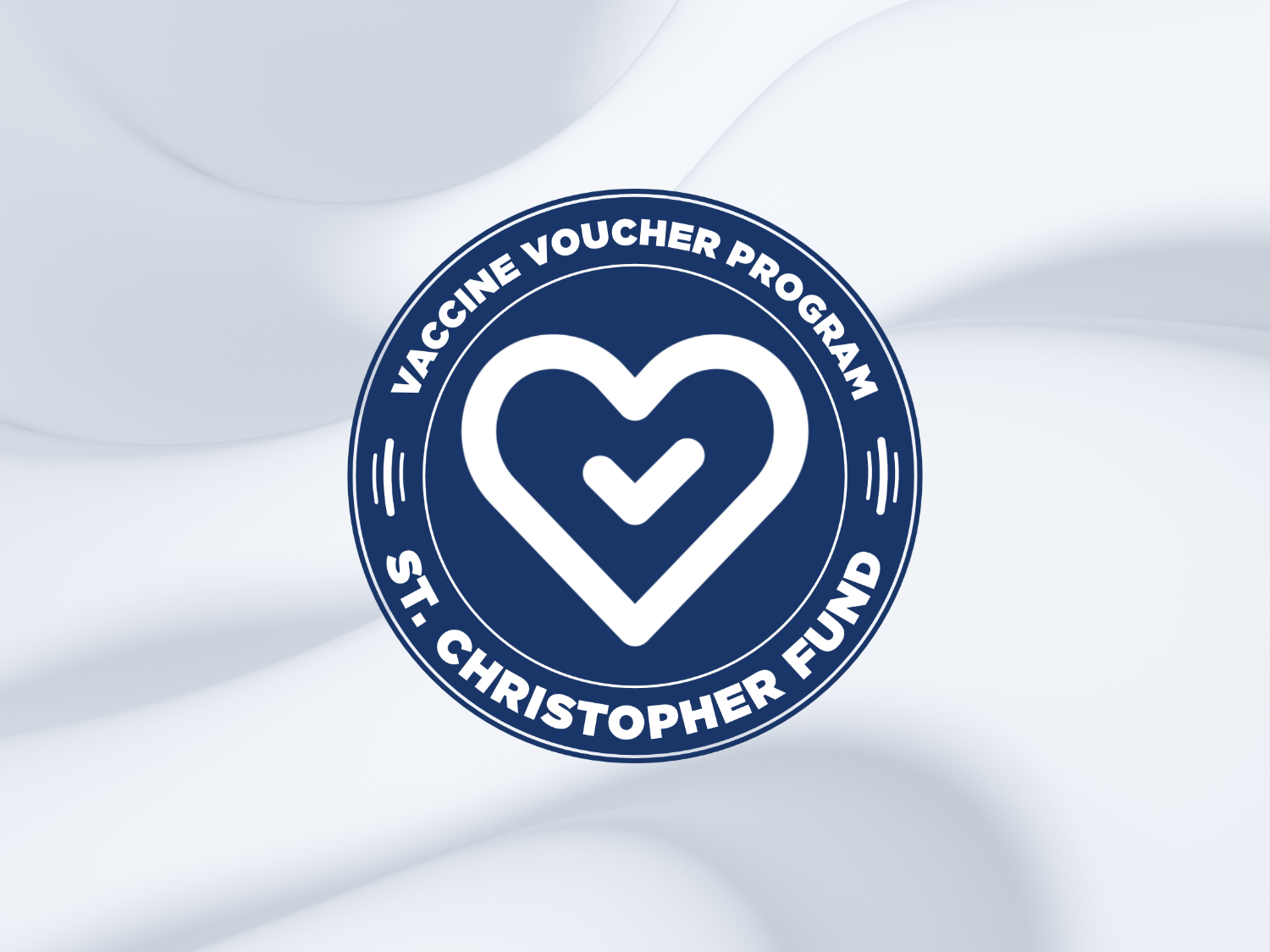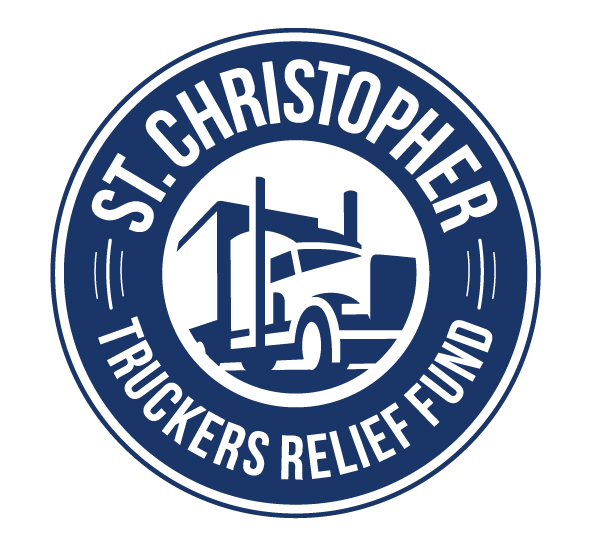
The St. Christopher Truckers Fund, thanks to sponsorship from OOIDA, offers free vaccine vouchers for uninsured over-the-road, Class A semi-truck drivers. These vaccine vouchers are available for pneumonia, shingles, flu, and Covid-19 vaccines to offer uninsured drivers a way to proactively prevent illness. Drivers can apply for one or multiple vaccination vouchers to use at either Walgreens, Kroger and Kroger Family of Brands, or The Little Clinic . Typically, if you have health insurance, preventative vaccines are covered. If for some reason your insurance does not cover the vaccines, please reach out to health@truckersfund.org for more information. Take a moment to learn more about flu, pneumonia, shingles, and Covid-19, and how these vaccinations can reduce your risk for serious illness.
Flu Vaccine
Influenza is a viral infection of the nose, throat, and lungs that spreads easily through droplets in the air. Symptoms usually come on quickly and can include fever, body aches, headache, cough, shortness of breath, fatigue, sore throat, and more. While many people can recover at home within a couple of weeks, the flu can lead to more serious complications that require medical intervention such as viral pneumonia, bronchitis, seizures, heart problems and difficulty breathing.
The flu vaccine is currently recommended annually for everyone age 6 months or older to reduce the risk of catching the flu as well as reduce the risk of more serious illness and hospitalization. The St. Christopher Fund vaccine voucher currently covers two different flu vaccines, a standard-dose flu vaccine and a flu vaccine recommended for those who are 65 years of age or older.
Pneumonia Vaccine
Pneumonia is an infection in the lungs that can be caused by viruses, bacteria, or fungi. While anyone can develop pneumonia, there are certainly some risk factors to be mindful of include age (children younger than 5 years old and adults 65 years or older), people who have other chronic medical conditions, and people who smoke cigarettes. In 2020, more than 47,000 people died from pneumonia and over 150,000 are hospitalized annually for pneumococcal disease. While pneumonia can usually be treated, it can also often be prevented. Common hygiene practices like regular hand washing, sanitizing frequently touched surfaces, and coughing into an elbow or sleeve can help to prevent the spread of respiratory infections that can lead to pneumonia. It is also important to manage chronic medical conditions such as asthma and diabetes, as well as avoid exposure to cigarette smoke. By the way, the St. Christopher Fund also offers a free smoking cessation program for OTR Class A CDL semi-truck drivers!
There are multiple types of pneumococcal vaccines available; each have their own guidelines based on age, health history, vaccination history, and other factors. Each vaccine protects against bacteria known to cause pneumococcal disease which can include ear infections, sinus infections, meningitis, infection of the bloodstream, and pneumonia. Recent studies show a 75% efficacy against invasive pneumococcal disease, which is the cause of the most serious pneumonia complications.
Shingles Vaccine
About 1 in every 3 people in the United States will have shingles in their lifetimes. Shingles is caused by the varicella-zoster virus, the same virus that causes chickenpox. After a person has had chickenpox, the virus remains in the body and can reactivate, often decades later, to cause shingles. This can happen during an extended period of stress when the immune system is weakened, from medications that affect the immune system, or for seemingly no reason at all. Shingles presents as a blistered rash on one side of the body or face, which typically scab over in about a week and may take up to 4 weeks to completely heal.
Along with the blistered rash, shingles can cause intense pain, itching and tingling prior to the rash appearing. This uncomfortable and even painful sensation can in some circumstances continue well beyond when the rash has healed. Also common are headache, chills, and upset stomach. Out of those who develop shingles, 10%-18% will develop long-term nerve pain, which can last for months or years beyond the initial onset. Although rare, shingles can affect vision, hearing, and can lead to pneumonia, inflammation of the brain, and even death. While there are a number of antiviral medications available to help shorten the duration and reduce severity of the disease, prevention in the form of the shingles vaccination is recommended. The St. Christopher Fund provides free shingles vaccines for uninsured OTR drivers.
The shingles vaccine, Shingrix, is recommended for adults 50 years or older as well as for adults 19 years and older who have weakened immune system. Shingrix consists of two doses and is more than 90% effective at preventing shingles (68%-91% for adults with weakened immune systems). Shingrix remains highly effective for at least 7 years after the vaccinations.
Covid-19 Vaccine
COVID-19 (coronavirus disease 2019) is a disease caused by the SARS-CoV-2 virus. It can be very contagious and can spread quickly. COVID-19 most often causes respiratory symptoms that can feel much like a cold, the flu, or pneumonia. COVID-19 may attack your lungs, respiratory system, and affect other parts of your body. Most people with COVID-19 have mild symptoms, but some people become severely ill. Some people, including those with minor or no symptoms, will develop Post-COVID Conditions , also called “Long COVID.”
COVID-19 spreads when an infected person breathes out droplets and very small particles that contain the virus. Other people can breathe in these droplets and particles, or these droplets and particles can land on others’ eyes, nose, or mouth. Anyone infected with COVID-19 can spread it, even if they do not have symptoms. Over 1.2 million people in the U.S. have died from COVID. The COVID-19 vaccine helps protect you from severe disease, hospitalization, death, and lowers your risk of getting Long Covid.
Everyone ages 6 months and older should get a 2024–2025 COVID-19 vaccine (*Novavax vaccine is only approved for age 12+). It is especially important to get your 2024–2025 COVID-19 vaccine if you are ages 65 and older, are at high risk for severe COVID-19, or have never received a COVID-19 vaccine. People who recently had COVID-19 may delay getting a COVID-19 vaccine for 3 months.
Through the effective use of vaccinations, together we can reduce the risk for serious illness from influenza, shingles, and pneumococcal disease! Visit www.truckersfund.org/healthwellness to get your free vaccine vouchers.
—
Sign up today! Learn more about our Health and Wellness programs here.
